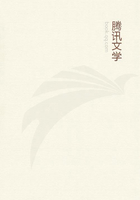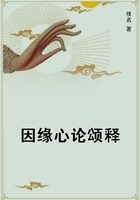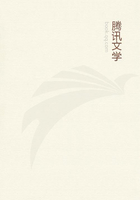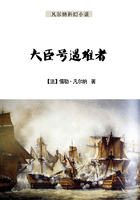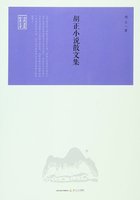Soc.And the same may be said of the patient, or effect; we shall find that they too differ, as I was saying, only in name-shall we not?
Pro.We shall.
Soc.The agent or cause always naturally leads, and the patient or effect naturally follows it?
Pro.Certainly.
Soc.Then the cause and what is subordinate to it in generation are not the same, but different?
Pro.True.
Soc.Did not the things which were generated, and the things out of which they were generated, furnish all the three classes?
Pro.Yes.
Soc.And the creator or cause of them has been satisfactorily proven to be distinct from them-and may therefore be called a fourth principle?
Pro.So let us call it.
Soc.Quite right; but now, having distinguished the four, I think that we had better refresh our memories by recapitulating each of them in order.
Pro.By all means.
Soc.Then the first I will call the infinite or unlimited, and the second the finite or limited; then follows the third, an essence compound and generated; and I do not think that I shall be far wrong in speaking of the cause of mixture and generation as the fourth.
Pro.Certainly not.
Soc.And now what is the next question, and how came we hither? Were we not enquiring whether the second place belonged to pleasure or wisdom?
Pro.We were.
Soc.And now, having determined these points, shall we not be better able to decide about the first and second place, which was the original subject of dispute?
Pro.I dare say.
Soc.We said, if you remember, that the mixed life of pleasure and wisdom was the conqueror-did we not?
Pro.True.
Soc.And we see what is the place and nature of this life and to what class it is to be assigned?
Pro.Beyond a doubt.
Soc.This is evidently comprehended in the third or mixed class;which is not composed of any two particular ingredients, but of all the elements of infinity, bound down by the finite, and may therefore be truly said to comprehend the conqueror life.
Pro.Most true.
Soc.And what shall we say, Philebus, of your life which is all sweetness; and in which of the aforesaid classes is that to be placed?
Perhaps you will allow me to ask you a question before you answer?
Phi.Let me hear.
Soc.Have pleasure and pain a limit, or do they belong to the class which admits of more and less?
Phi.They belong to the class which admits of more, Socrates; for pleasure would not be perfectly good if she were not infinite in quantity and degree.
Soc.Nor would pain, Philebus, be perfectly evil.And therefore the infinite cannot be that element which imparts to pleasure some degree of good.But now-admitting, if you like, that pleasure is of the nature of the infinite-in which of the aforesaid classes, OProtarchus and Philebus, can we without irreverence place wisdom and knowledge and mind? And let us be careful, for I think that the danger will be very serious if we err on this point.
Phi.You magnify, Socrates, the importance of your favourite god.
Soc.And you, my friend, are also magnifying your favourite goddess;but still I must beg you to answer the question.
Pro.Socrates is quite right, Philebus, and we must submit to him.
Phi.And did not you, Protarchus, propose to answer in my place?
Pro.Certainly I did; but I am now in a great strait, and I must entreat you, Socrates, to be our spokesman, and then we shall not say anything wrong or disrespectful of your favourite.
Soc.I must obey you, Protarchus; nor is the task which you impose a difficult one; but did I really, as Philebus implies, disconcert you with my playful solemnity, when I asked the question to what class mind and knowledge belong?
Pro.You did, indeed, Socrates.
Soc.Yet the answer is easy, since all philosophers assert with one voice that mind is the king of heaven and earth-in reality they are magnifying themselves.And perhaps they are right.But still Ishould like to consider the class of mind, if you do not object, a little more fully.
Phi.Take your own course, Socrates, and never mind length; we shall not tire of you.
Soc.Very good; let us begin then, Protarchus, by asking a question.
Pro.What question?
Soc.Whether all this which they call the universe is left to the guidance of unreason and chance medley, or, on the contrary, as our fathers have declared, ordered and governed by a marvellous intelligence and wisdom.
Pro.Wide asunder are the two assertions, illustrious Socrates, for that which you were just now saying to me appears to be blasphemy;but the other assertion, that mind orders all things, is worthy of the aspect of the world, and of the sun, and of the moon, and of the stars and of the whole circle of the heavens; and never will I say or think otherwise.
Soc.Shall we then agree with them of old time in maintaining this doctrine-not merely reasserting the notions of others, without risk to ourselves,-but shall we share in the danger, and take our part of the reproach which will await us, when an ingenious individual declares that all is disorder?
Pro.That would certainly be my wish.
Soc.Then now please to consider the next stage of the argument.
Pro.Let me hear.
Soc.We see that the elements which enter into the nature of the bodies of all animals, fire, water, air, and, as the storm-tossed sailor cries, "land" [i.e., earth], reappear in the constitution of the world.
Pro.The proverb may be applied to us; for truly the storm gathers over us, and we are at our wit's end.
Soc.There is something to be remarked about each of these elements.
Pro.What is it?
Soc.Only a small fraction of any one of them exists in us, and that of a mean sort, and not in any way pure, or having any power worthy of its nature.One instance will prove this of all of them; there is fire within us, and in the universe.
Pro.True.
Soc.And is not our fire small and weak and mean? But the fire in the universe is wonderful in quantity and beauty, and in every power that fire has.
Pro.Most true.
Soc.And is the fire in the universe nourished and generated and ruled by the fire in us, or is the fire in you and me, and in other animals, dependent on the universal fire?

